- Home
- Greg Keyes
Footsteps in the Sky Page 4
Footsteps in the Sky Read online
Page 4
Airborne, she let the wings fold out, gossamer and unbreakable. She kicked on the afterjets and the world became a tunnel, wrapped around her. The mesa city was gone, melting into the shadows of fast-approaching night. Pela nosed east, and the quavering black shadow of the Dragonfly ran ahead of her, seemed to slide up the steep valley wall like a predacious jet amoeba, devouring meters and kilometers with unassuagable hunger. The lip of the canyon rushed down to meet the shadow, and Sand smiled as her afterjets brushed the black stone and gravel with clear heat, reveling in the absolute speed of her reflexes, the almost audible calculations in her head, the sense of seeing everything and nothing all at once.
“You will not see a stone or a tree or your own all-important thoughts,” Her teacher had told her, in the quiet of the kiva. “You will hear and see and smell the world as a single thing. Or you will die.”
Now the completeness that was the world was a thing of coal and rust, blood colored oil on a pool of night, the moon a cobalt blue marble rolling on the north-east horizon. Deep inside of SandGreyGirl, a skeleton sorrow danced, but it was a distant grief. As the Dragonfly Kachina she was above all human cares.
Black ridges pushed up through the skin of the earth like the sharp edges of broken bones. The basalt towers waxed in her vision, devouring the sky, the wholeness of the earth, so that the Dragonfly began to leave her. The machine she straddled became just that—a hovercraft, long and thin—large enough to carry two people but perfect for one. She retracted the wings and cut the underjets on full, to break her fall, and now Masaw came dancing out of her, the death god, filling the shadows with grief and dread.
Too bad she couldn’t always be the Kachina, with its shiny steel heart.
Sand stepped wide, avoiding the hot sand beneath her jets. The metal of the Dragonfly began to tick and ping as it cooled in the chill night air.
“Well, here I am,” Sand remarked, as much to herself as to any spirits who might be listening. She patted the sealed pocket at her hip to reassure herself that her little burden was, in fact, there.
Her mother called this place, “Where the Kachina Touched Me”. Sand had been here with her a few times, but her mother came here every month, a pilgrimage that she missed only the last time, as her body wasted with lightning speed, as her eyes clouded and ceased to understand light. Sand made this last pilgrimage for her, to bury her sacred things in the place most sacred to her. Somewhere here, in the heart of her land.
My land now, Sand thought miserably.
But where was that? These cliffs were large. Sand carefully paced across the black soil, searching for the spot, the very place her mother had seen the Kachina itself. That was easily done—her mother had shown it to her on each trip they made together—but there was nothing to signify a special place. Sand knew what she should find: a small shrine, a few prayer-sticks keeping vigil, something like that. Where?
The little bundle in her pocket seemed to be getting heavier. Sand thought back to when she was a child: her mother’s story of the Kachina from the stars frightened her, fascinated her. The immense black stone had seemed poised to fall upon her, crush out her tiny life, but Pela was always unafraid. She was always able to soothe Sand, show her the beauty even in fear.
Some of those memories—the ones of their camping trips together—were the best. At fifteen, her mother had given her her first whiskyberry here, and the two of them had gotten drunk, drunk and very silly. It was that night that Pela confided some things about Jimmie, her husband—SandGreyGirl’s father. Things Sand could neither forget nor forgive. It was that night that she had fallen in love with her mother.
Sand smeared the tears across her face, let a single, wracking sob tear loose from her chest. She could use some of those whiskyberries right now.
Sand knew, then, and she picked her way up the broken stone until she came into the little dark cove where she and her mother camped that night. She crossed beyond a certain big stone and saw the whiskyberry plant, their plant. Its stubby body offered her five or six ripe fruit, but Sand regretfully ignored them. She flipped on her torch and carefully scanned around. She smiled wanly at the little cornbrake her mother had begun before Sand was born, hugging the damper sand near the black stone. Some of it was tasseled, almost ready to produce the little blue cobs that her people so cherished. Each year the roots of the corn spread a little farther, and each year more stalks came up to savor the moisture that collected here. It was tenacious, like her mother had been, stunted by the desert but still bearing fruit. Sand pushed carefully through, unwilling to damage a single stalk. What she was searching for should be behind, somewhere. …
There. Long ago, gas had slowly forced its way up through cooling magma. It had formed a bubble and then been frozen there when the molten rock cooled, until the corrosive forces of the winds had eaten through the stone itself. The hollow that remained was a semi-circular cavity, mostly filled with sand. The torch revealed four small prayer sticks there, colors dimmed by time.
Hello, mother, Sand thought, and began to cry again.
The moon had made his short arc across the north and set before Sand gathered the courage to do what she must. With a surprisingly steady hand, she pulled the little bundle of amulets and items that her mother had cherished. Near the little pahos, the prayer sticks, she brushed a depression on the sand.
“I will bury them here, mother, and then close up the opening. You will still know where to find them.” If what the old people say is true. If she really leaves her grave in four days and comes here to reclaim her things.
And as she doubted, her fingers encountered something buried in the coarse grit.
Sand hesitated. What had her mother buried here? She gritted her teeth, summoned all of her skepticism about ghosts and spirits to armor herself with. These are just things, she thought. But this inner assurance seemed lost in a shadowy realm, a dark house populated by the dancing forms of the Kachina and the souls of the dead. Nevertheless, she resumed her digging.
The object she dug out of the black powder was a book. Sand lifted it gingerly, reverently. The nearly flat, translucent rectangle was smooth and cool in her hands. She stared at it. Only one word was visible, so dim that it was obvious that the book had long been away from the revitalizing strength of the sun.
Laughs-with-me, it said.
That was her name, the name Pela had given her that night she had first been drunk.
Sand touched the contact that would wake the book up. A tiny message appeared, as dim as the first.
“Key necessary”.
Sand nodded. Carefully, so carefully, she unrolled the little bundle she had brought to bury. Two little amulets, carved of the black stone of these very cliffs. A small silver star that a man named Tuvenga had given her long ago. The magical odds and ends of a too-short life.
And there was a little coded bar, twisted into the shape of a ring. Sand put the ring on and touched the book again. This time, the pale writing filled the cover of the box.
“Sand, my daughter. There are some things you must know, now. …”
Sand thumbed the box off. The letters were too pale, and she was too tired. The morning would bring them both more energy.
She checked carefully in the sand around the pahos and found nothing else. She buried her mother’s magic things and blocked up the tiny cave with stones. Afterwards, Sand sat looking at the pile of rocks for a moment that seemed to become the whole night.
Finally, she trudged reluctantly back down to the Dragonfly and opened up the cargo hatch. She took out an alcohol stove and a wire-mesh bowl that fitted over its burners. She set the stove up with the mesh bowl, kindled the stove, and filled the bowl with the densest rocks she could find.
Another trip to the hovercraft brought her back with four long, flexible shafts and a sheet of polymer cloth three meters on each side. Sand thrust the sharp ends of the shafts into the
ground so that they arched up towards the sky. When all four were planted, she had the skeleton of a dome with the rapidly heating rocks in the center. Finally, she pulled the cloth over the dome and weighed it down on the edges with rocks. Her sweatlodge was finished. She placed a small bag inside, where the heat was already beginning to grow fierce. Then Sand stripped off her tough flight suit, a one-piece garment of reinforced Densedren. The plateau breeze prickled bumps on her exposed skin as she also removed her cotton shorts and shirt. She tried not to hurry, to maintain the dignity of the ceremony. Thus she stood for a moment, her lean body fully exposed to the sucking breath of the sky, as if to express her disdain for it. She took down the elaborate braided rolls on either side of her head that signified her unmarried status, letting her dark brown hair fall thickly to her waist. Then Sand bent down and entered the sweat house.
It took only instants for her chilled pores to open up. She rocked back and forth in the furnace heat, and sweat soon slicked her body completely. I am like my ancestors, the fish she hummed to herself, recalling her clan’s version of the origin. Fire seemed to walk back and forth across her dark skin, searching for a way in.
And found its egress through her nostrils, as her lungs seemed to expand with live flame.
Sand opened up the bag and pulled forth a small swatch of green branches and a thick, resinous piñon cone. Reverently, she placed the juniper branches on the now-glowing red stones. She placed the piñon cone beside it. Both of these things were rare and precious; as sacred plants, both piñon and juniper had been brought from Earth, but required much care.
They began to smoke, and the thick resinous odor of them filled the sweatlodge. The smoke covered her and filled her up, and now she was a fish in the dark depths of a juniper sea. The smoke scrubbed her, lifting away the touch of her mother’s corpse, the cold plastic feeling of it. The smoke was fragrant purity, and the breath of a ghost could not long withstand it.
Goodbye, Sand told the smoke. Goodbye, mother.
She began to sing and did not stop until the cloth of the lodge was soaked with the earliest light of dawn.
Chapter Two
“Nu’qa nauti’ta sen tumala’ taniqa’e,” Alvar Washington told himself for the third time, a look of intense concentration on his face. Teng had just entered. She glanced at him with a dour expression.
“You say the nicest things,” she observed, leaning against the bulkhead, arms folded loosely beneath her breasts.
“Don’t I,” he acknowledged. “Shiau Shi: Teacher off.”
The image of himself across the table flickered out of existence.
“So that’s who you’ve been spending all of your time with,” Teng murmured. “I should have known. You’re the most natural narcissist I’ve ever met.”
Alvar grinned and brushed back his long, thick hair. “Facial expressions are language too,” he told her. “Might as well learn from the face I’ll be using.”
“Might as well,” Teng agreed. “Wanna fuck?”
Alvar twisted in his seat to face her. “You could try seducing me,” he said. “You know, subtly?”
“I could,” she agreed. “On the other hand, I don’t feel like bullshitting right now.”
“That’s better,” Alvar returned. “Who can resist that kind of approach?”
Teng shot him a look wet with poison. She smiled without humor, her yellow eyes narrowed to slits.
“In two weeks, I’ll being reviving some of the peacekeepers. Thank Durga.”
“In two weeks I’ll be fucking women made out of skin,” Alvar shot back.
Teng took a step forward, and for the second time in his life, Alvar truly believed he was about to die. The first time, as a child, he had been playing in the desert outside of Santa Fe. He had fallen down and found himself eye-to-eye with a coiled rattlesnake. Then, as now, he kept absolutely still, waiting for the danger to pass, fearing that it would not.
But it did, as it had then. Teng took the step back, and the rattlesnake look melted briefly into something else before she turned on her heel and left him alone.
Alvar let out his breath, slowly. When he had met Teng, three years ago, he had guessed immediately that she was enhanced. But for three years he had been caressing that hard, slim body. He knew it better than any he had ever known, with the possible exception of his own. But contrary to what Teng had accused him of, Alvar was no narcissist. He like his body well enough, enjoyed pleasuring it with hot baths, good meals, fine whisky. But he loved Teng’s body, even if he didn’t love her. And so he knew, knew about the thick plates of plastimuscle that lay beneath her flat stomach, over her kidneys, beneath those high, sharp breasts. He had read everything he could about enhancement from the ship’s library, about how they had engineered her own cells and created fibers that could stop bullets. Her vital organs were surrounded and cushioned by thick, spongy structures; her bones were very unlikely to break under anything approaching normal circumstances. She probably had extra organs, too—small, perfect backups for her primary systems.
She was all flesh, Teng was, but it was marvelous flesh. Flesh that had killed over a dozen soldiers in the Kenya massacre, maybe more elsewhere.
Alvar had watched her train, too, practice kicks and punches that were so fast and graceful they scarcely seemed deadly.
Just now, she had nearly killed him, he was certain of that.
Possibly, he deserved it. He had never made reference to her … state … before. He did not know what circumstances of her life had brought it about; the promise of distance she had made their first time together had been kept, for the most part.
But it was that most part that kept him guessing. They had talked, long and earnestly. They had played chess and riddle games. She outmatched him spectacularly in handball, usually lost when they played cards. And of course, there was lovemaking. In some ways, the latter was the least intimate thing they did together. And yet, Alvar reflected, one could not make love to the same person so many times without at least beginning to think you were in love with them.
Strike that. It was just him that had that problem.
He called his image back into existence.
“Hello,” he said, in the pseudo-Hopi he had been studying, consciously and unconsciously.
“Hello,” the image told him, in the same language. “What shall we talk about today?”
“Tell me about the Hopi. The real ones.”
His image shrugged, pursed its lips in the “Hopi” expression of thoughtfulness.
“They were a pueblo-dwelling people of the southwestern part of North America, now the Western States of America. They probably had a long unwritten history, suggested by various archaeological traditions that are known generally as Anasazi. They first became a part of written history when Spanish conquistadors entered the region in the sixteenth century. They retained a remarkably cohesive social structure in the face of European expansion and conquest, to a limited extent even to the present day. Their religion was complex and never fully understood at any one time by outsiders. With a few notable exceptions, it remained fundamentally an oral tradition to the Hopi themselves.”
“Right. Tell me about the most notable exception. The one the colonists of Fifth World predicated their society upon.”
“You tell me,” the image replied, with his own smug grin.
Alvar had learned things in a certain order. First the language and general cultural things like kinship; then the history of the colonists and their ideological foundations. This “conversation” was to be a sort of review, one that he badly needed. He nodded at himself.
“Fair enough. About 2025, four Hopi elders shared a vision about their people, one in which their culture and religion declined and vanished utterly. They therefore set out to record everything they remembered about the Hopi lifestyle.”
“Hold it,” his reflection told him.
“They weren’t all Hopi elders.”
“Oh. Right. One was Zuni and another was Tewa, from around my old home town. But the other two were Hopi elders.”
“And they were a minority in their community. Most of the Hopi believed that it was better for their culture to die than to record it on film, tape, or even paper.”
Alvar glared at his image. “True enough. But that part isn’t in the stories they tell on the Fifth World, is it? In their version, it was those four who were truly Hopi, and their peers who were kahopi—the bad guys.”
Mirror-Alvar shrugged and motioned for him to continue. He did so.
“These four recorded all of the ceremonies, legends, and so on for posterity, and they agreed among themselves to call this lifestyle “Hopi”, despite its varied origins. Hopitu-Shinumu, really, which means “The Well-Behaved People”. I guess what they recorded was a sort of amalgam of pueblo lore, though, probably with some European and Asian stuff worked in.”
His double grinned thinly. “Now you’ve strayed off of the official version.”
“Fair enough. But that’s about it, except for the prophecy. They predicted that one day the Hopi people would be reborn through the record that they had left, and that they would leave the Fourth World for the Fifth, a world created for them by the Kachina.”
“Which Kachina?”
“Ah … shit, there are hundreds of them. Ah … Blue Star?”
“Right. And a Kachina is. …”
“An ancestor-cloud spirit. They live in the mountains or the sky for half the year, but for the other half they live amongst the Hopi in human form. Special impersonators wear masks and outfits. Everybody thinks that whoever wears the mask is sort of possessed by the Kachina it represents.”

 Godzilla
Godzilla Godzilla vs. Kong
Godzilla vs. Kong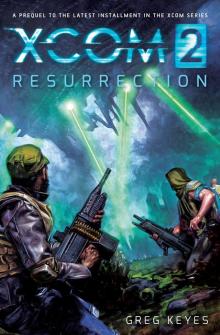 XCOM 2- Resurrection
XCOM 2- Resurrection Independence Day: Crucible (The Official Prequel)
Independence Day: Crucible (The Official Prequel)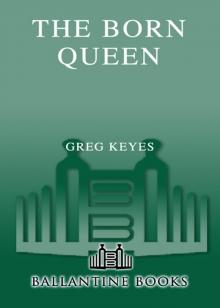 The Born Queen
The Born Queen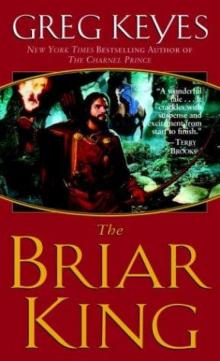 The Briar King
The Briar King Star Wars The New Jedi Order - Dark Journey - Book 10
Star Wars The New Jedi Order - Dark Journey - Book 10 Star Wars: New Jedi Order Book 8b: Emissary of the Void
Star Wars: New Jedi Order Book 8b: Emissary of the Void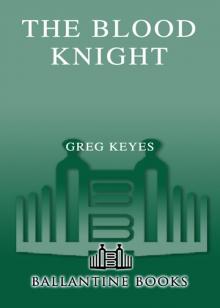 The Blood Knight
The Blood Knight Star Wars - Edge of Victory - Book 1: Conquest
Star Wars - Edge of Victory - Book 1: Conquest Edge of Victory 2 Rebirth
Edge of Victory 2 Rebirth Lord of Souls: An Elder Scrolls Novel
Lord of Souls: An Elder Scrolls Novel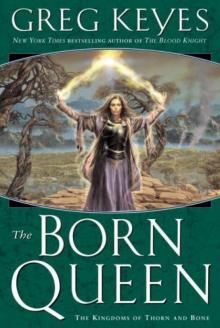 The Born Queen tkotab-4
The Born Queen tkotab-4 Rebirth: Edge of Victory II
Rebirth: Edge of Victory II Conquest: Edge of Victory I
Conquest: Edge of Victory I Emissary of the Void
Emissary of the Void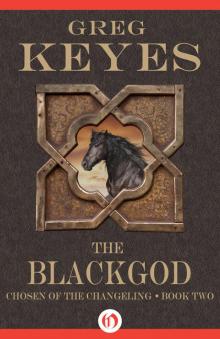 The Blackgod
The Blackgod Star Wars The New Jedi Order - The Final Prophecy - Book 19
Star Wars The New Jedi Order - The Final Prophecy - Book 19 The Infernal City
The Infernal City The Charnel Prince
The Charnel Prince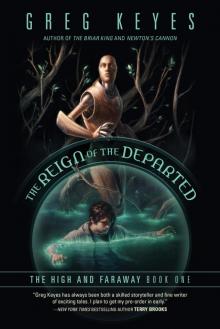 The Reign of the Departed
The Reign of the Departed Lord of Souls es-2
Lord of Souls es-2 Chosen of the Changeling
Chosen of the Changeling Dawn of the Planet of the Apes
Dawn of the Planet of the Apes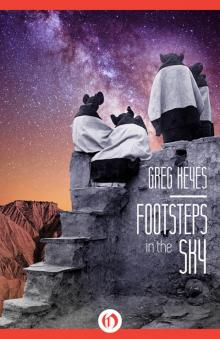 Footsteps in the Sky
Footsteps in the Sky PACIFIC RIM UPRISING ASCENSION
PACIFIC RIM UPRISING ASCENSION The Final Prophecy: Edge of Victory III
The Final Prophecy: Edge of Victory III